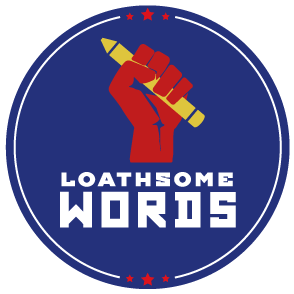 Remember these great lines?
Remember these great lines?
Four score and seven years ago our fathers brought forth, upon this continent, a new nation, conceived in liberty, and dedicated to the proposition that “all men are created equal.” And now we are engaged in a great civil war, testing whether that nation, or any nation so conceived, and so dedicated, can long endure.
*
It had begun to snow again. . . . It lay thickly drifted on the crooked crosses and headstones, on the spears of the little gate, on the barren thorns. And his soul swooned slowly as he heard the snow falling faintly through the universe and faintly falling, like the descent of their last end, upon all the living and the dead.
*
And reader, I married him.
*
You wouldn’t remember them in quite the same way if Abraham Lincoln, James Joyce, and Charlotte Brontë had actually put in the Ands at the start of those sentences (added by me).
A matter of trusting yourself (1) not to need it or (2) to come up w a more creative transition. Sentences are so full of "ands" as it is.
— Bill O'Sullivan (@billmatto) April 26, 2016
After my two tweets, a writer and editor—I can’t say no relation because he is—replied with another good reason to avoid this tic:
https://twitter.com/mr_osullivan/status/725287027759968256
Too many people think And underscores their point when, more often than not, it does the opposite: It dampens the tone. The next time you write such a sentence, reread it in your head without that word and see if the original really is better.
In case you haven’t picked up on my qualifying asides, I do acknowledge exceptions. To wit, Joan Didion:
“My only advantage as a reporter is that I am so physically small, so temperamentally unobtrusive, and so neurotically inarticulate that people tend to forget that my presence runs counter to their best interests. And it always does.” (From Slouching Towards Bethlehem.)
If I were forced to cut anything there, it would be the conjunction in the first sentence. That’s more expendable—even, one could argue, unnecessary. Deleting And from Didion’s kicker, though, flattens it into a soggy graham cracker rather than the dry, pointed statement she intends it to be (all the more so after her wily self-deprecation).
If Didion isn’t an impressive-enough exception, try this:
“And God said, Let the earth bring forth the living creature after his kind, cattle, and creeping thing, and beast of the earth after his kind: and it was so. And God made the beast of the earth after his kind, and cattle after their kind, and every thing that creepeth upon the earth after his kind: and God saw that it was good.”
On second thought, I might have a go at that one.
Correction: It was Charlotte Brontë, of course, who wrote Jane Eyre. This post originally attributed a quote from it to Emily Brontë.



















